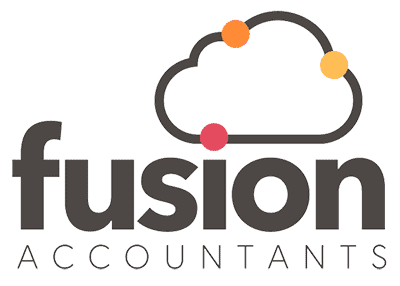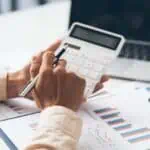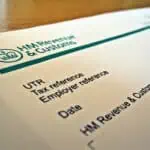A Guide To Allowable Self-Employed Expenses
Reading Time:
Whether you are a self-employed plumber, freelance journalist, or physiotherapist, it is inevitable that you will incur costs n running your business.
HMRC has clear rules around what you can and can’t include, which is why the costs that you can include in your calculation are called ‘allowable expenses’. To help navigate your way through this, we have put together a summary below of the expenses you can claim when submitting your Self-Assessment tax return.
When looking at your income and expenditure, your profits will be your income minus expenses. As you will only be taxed on your profits, the higher your expenses, the lower your tax bill. If you aren’t VAT registered, the total amount spent on the expenses, including VAT, is deductible.
Buying or improving capital items e.g. a van, business premises, equipment or fixtures/furniture are not business ‘expenses’ for tax purposes, but you may still be able to claim tax relief for them, as long as they are related to your business. Capital items need to be shown separately on your Self-Assessment tax return but will also reduce your taxable profits.
You may be asked to provide evidence by HMRC that you actually incurred an expense and that the expense was for your business. Do not make them up to pay less tax as the penalties are severe.
Self-assessment record-keeping
It is vital for your business that you keep up-to-date and accurate records/receipts. It will make completing your tax return easier and help you keep track of your expenses. If you do not keep adequate records or complete your tax return correctly/within the HMRC deadlines, you may have to pay a penalty.
You must keep records/receipts for:
- cashbooks
- invoices
- mileage records
- bank statements
- receipts for purchases
- CIS vouchers
If kept electronically, you must:
- photograph/scan both front and back
- save information in a readable format
- keep a back-up
As a rule, you should keep all records for a minimum of six years.
Allowable expenses and completing your 2019-2020 tax return
The Self-Assessment tax deadline for tax year 2019-20 is 31 January 2021. Allowable expenses help you work out how much tax you need to pay – and the government has announced support measures for businesses struggling to pay due to coronavirus.
This includes a deferral in paying your Self-Assessment tax in full until 31 January 2022, for bills of up to £30,000. You will need to use HMRC’s online Time to Pay service to apply.
We would recommend that if you can pay your bill, you should, because interest will be applied to the outstanding balance from 1 February 2021.
Your tax-deductible expenses
In most cases, it will be clear if an expense is incurred for business purposes and if a receipt has been kept as proof of purchase, a deduction will be allowed.
However, a newly established business is often run from home, perhaps using an existing car for business travel and an existing mobile for business calls. This can cause problems, because of the ‘duality’ of purpose in these costs. It is important that you can clearly identify and separate the expenditure between business and private purposes.
To make things easier we have listed these expenses in more detail.
Motoring expenses

If you use a car for business and privately, you can claim a proportion of the running costs e.g. fuel, oil, servicing, repairs etc, in the ratio of your business mileage to your total mileage.
You must keep a log of business mileage, as well as copies of all bills/receipts, to calculate the appropriate deduction.
The figures to use when claiming are:
- Car or van: 45p/mile for the first 10,000 miles and then 25p/mile
- Motorbike: 24p/mile
- Bicycle: 20p/mile
The mileage rate covers the costs of running and maintaining the vehicle e.g. fuel, oil, servicing, repairs, insurance etc. The rate also covers the depreciation of the vehicle. So, if you use the mileage rate basis, you cannot claim any additional amounts for these expenses.
What constitutes business miles?
If you own/rent separate business premises away from home, then the cost of travel between your home and your business premises is not allowable, as this is ordinary commuting. The cost of travel between your business premises and other places where work is carried out, is an allowable expense.
Where the contractor travels regularly at their own expense to a work base to receive instructions from a boss and then is conveyed (at the boss’ expense) to another location(s), the contractor will have no allowable travel costs.
It is sometimes possible where a contractor’s home is their business base (they may sometimes work or keep their business records, materials, tools there etc) and works at many different sites during a year, they can be called an ‘itinerant’ trader. Travelling expenses between their home and those sites should normally be allowed. Visit the HMRC website which as a very good guide on this.
Use of home as office

Where a room at home is used for business purposes, a deduction may be claimed for the additional costs of the business use, such as light/heat. This means that when part of the home is being used for the business, that is the sole use for that part at that time.
So, if the part of the home used for business purposes such as creating invoices is also, at the same time, used for other non-business purposes, e.g. watching television, then no deduction is due.
If part of your home is used solely for business use for a period, you can claim the costs you incurred in that part during that period
You cannot claim expenses for buying or building your business premises. If you run your business from home, you can include part of your home utility bills, but you need to work out the proportion of your home that’s used for business, and what proportion of the month it’s being used for business purposes.
Gov.uk gives an example method of dividing the costs by the number of rooms. Say you have four rooms in the house, and you use one as an office. If your electricity bill for the year is £800, and each room uses an equal amount of electricity, you can divide the bill by four to claim £200 allowable business expenses
In the right circumstances, you can claim part of:
- Insurance
- Council tax
- Mortgage interest
- Rent, repairs/maintenance
- Cleaning
- Heat, light/power
- Broadband/landline, including part of the line rental
Admin costs

You can also claim for the admin costs of running your business, including advertising, stationery, postage, and phone. You may also be able to deduct the cost of trade magazines or subscriptions.
With mobile phones, the simplest way to prove that mobile costs are for the purposes of trade is to have a separate contract phone for business and keep your phone bills as evidence that you one phone for business and one for personal use.
Disallowed expenses

Some expenses are disallowed for tax purposes e.g. entertaining clients, even if this directly led to new business.
Personal expenditure is also disallowed so you cannot claim tax relief for the items listed below.
1. Personal clothing
Expenses for non-work clothing (e.g. anything other than a uniform) worn for work are disallowable. This still applies even where standards of dress are required by a professional body.
2. Food and drink
The cost of food/drink is not an expense incurred for business purposes since everyone must eat to live! Even if the physical demands of your business require you to eat more or if food at your workplace is more expensive, it is still disallowed.
3. Accommodation
The cost of domestic accommodation is not allowable, even if it allows you to do more work, as the choice of where you live is a personal choice. Where a business trip means one or more nights away from home, hotel accommodation and associated costs may be deductible.
We hope you found this blog useful. Tax can sometimes be a bit of a minefield, and you can face fines if you make a mistake on your tax return, so look at the guidelines on the government’s website
For further information, please get in touch with us and we’ll be happy answer any questions you may have on 0208 577 0200 or drop us an email here and we will be in touch as soon as possible.







